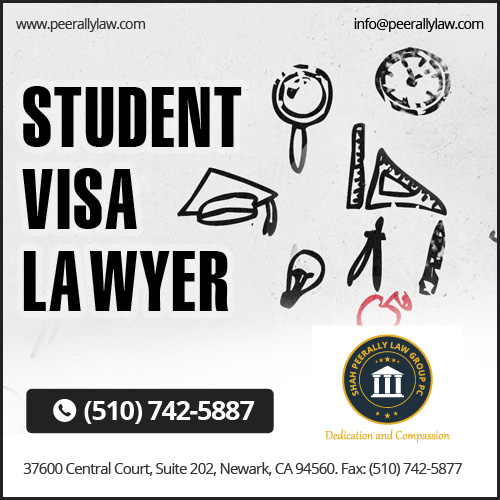What is an F-1 Visa and Who Qualifies?
An F-1 visa allows foreign nationals to come to the US as a full-time academic or language student enrolled in a program leading to a degree or certificate. Note that other non-immigrant visa holders can be students in school, just as long as it does not interfere with their status.
In summary, the requirements for an F-1 visa are that you
- i) must be coming to the US as a full-time student in a program which leads to the attainment of a specific vocational or educational objective,
- ii) have already been accepted by a school approved by the government,
- iii) have sufficient knowledge of English, and
- iv) demonstrate the financial support needed to complete the studies without having to earn any income.
Other than the final semester of studies, there is no exemption to the rule that F-1 students maintain full-time status. For undergraduate studies, this would mean that the foreign student would have to have a course load of at least 12 units per semester, while at the graduate level, it is generally a minimum of 8 units per semester.
An F-1 visa is not issued to prospective students. The school must issue what is called an I-20, which confirms admission to the program. The foreign national submits the I-20 with the F-1 visa application. For those seeking entry to the US in order to visit schools that he or she would like to consider, such a foreign national should apply for a B-2 tourist visa, and inform the consulate that they are a prospective student. Admission in B-2 status as a prospective student allows the visitor to change status to F-1 in the US.
Knowledge of English is proven by taking and passing the Test of English as a Foreign Language (TOEFL), unless the foreigner is from country where English is an official language.
Proof of financial support can generally established an affidavit of support including the affiant’s financial documents, and financial documents of the foreign national’s proving that there are sufficient funds available to cover the expenses for one year of studies.
When can I Obtain an F-1 Visa?
There are no limits set on the number of F-1 visas which may be issued every year; therefore one may apply any time of the year. You are also not prohibited from taking classes while a change of status to F-1 is pending, although your school may have an internal policy preventing you from taking classes.
What are the Benefits and Limitations of F-1 Visas?
While on F-1 status, you may legally work part-time on-campus during the school year, and full-time off-campus during the summer breaks by applying for it. After graduation, you may apply for Optional Practical Training (OPT), to spend 12 months in employment after your studies complete. An additional 17-month extension is available for those whose degree falls under the Science, Technology, Engineering, and Math (STEM) group. As far as transfers are concerned, you may transfer from one school to another or switch programs through a simple procedure where USCIS is notified of the change.
An important limitation to be aware of is that F-1 status is not a “dual intent” visa, meaning that you may not have both the intent to be a student and intend to immigrate. Consequently, if you have a green card petition process pending, it may be difficult to obtain an F-1 visa or any extensions. During OPT, there is a 90-day unemployment limit, although volunteer work is effective to maintain employment status unless you are into your STEM extension.
What is the Attorney’s Role in an F-1 Visa Application?
An attorney may be of assistance in preparing a change of status application in the US, but otherwise, the school should be able to assist those who are overseas seeking admission as an F-1 student. No legal assistance would be required for F-1 extensions. For effectuating an extension, you should contact your designated school official (DSO).
Contact Us
To discuss F-1 visas and other alternatives with an experienced immigration lawyer from the Shah Peerally Law Group, feel free to contact us by email or call us at 510-742-5887.
Fees
Click the following link for our fee schedule — >Attorney Fees
F1 Student Visa Testimonial
“He was the first one to take up Tri Valley Uni issue and he stood by victimized students, he was very responsive and available anytime for consultation when in need. He is very knowledgeable in Immigration issues, I seriously recommend anybody who are in need of quick response and correct guidance can go to SHAH blindly, he will get you an answer. – Shah P.“
Click the following link for more testimonials — > Testimonials


